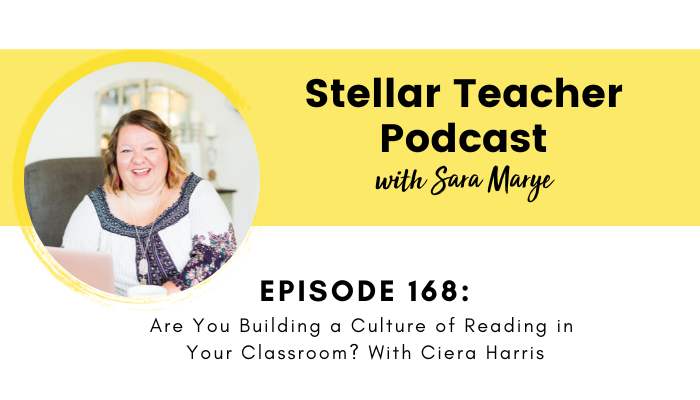
Click play below to hear how to build a culture of reading in your classroom:
We all know incorporating reading and making it a priority in the classroom is important, but it takes more than that to really change how a student feels about reading. In order for a student to identify as a reader, they need to be immersed in a culture of reading in which they find personal connections to the text. My guest on today’s episode, Ciera Harris, is sharing how to build a culture of reading in your classroom with practical tips and ideas.
Ciera is a literacy expert who puts an emphasis on reading that goes beyond the standards, lessons, and standardized tests. She believes in building a culture of reading and reveals reflective questions that help you assess whether your classroom is equipped with a reading culture. But if your classroom isn’t, Ciera provides five practical ways to build a classroom culture of reading, which are based on your passion for reading and teaching philosophy.
If we want students to identify themselves as readers, the work starts in early elementary school with building a culture of reading. Creating experiences that show your passion for reading, providing access to all types of genres for students, and knowing your students as readers, all combine to build a reading culture in your classroom.
Meet Ciera
Ciera Harris
Ciera Harris, a former elementary school teacher turned educational consultant, brings a decade+ of expertise in reading instruction to the table. She excels in reading skills and strategies, creating effective lesson plans, and supporting readers in comprehension. Ciera has presented at prominent reading conferences and developed her own course on reading comprehension. In addition, Ciera hosts the “Ciera Harris Teaching” YouTube Channel and “The Literacy Lounge” podcast. She is also a current doctoral candidate specializing in literacy. If you’re an elementary teacher aiming for enhanced reading instruction, Ciera Harris is your go-to resource.
In this episode on building a culture of reading, we discuss:
- Why building a culture of reading is so important for students’ relationship with books
- How to assess whether you have a culture of reading in your classroom
- Reflective questions to ask yourself that assess your reading culture
- 5 practical ways you can build culture in the classroom
- An easy activity that gets students talking about books
Resources:
- Listen to Ciera’s Podcast, The Literacy Lounge
- Sign up for my Private Podcast: Confident Writer Systems Series
- Check out the Stellar Literacy Collective Membership
- If you’re enjoying this podcast, please leave a review on Apple Podcasts!
Related episodes and blog posts:
- Episode 154, My #1 Tips for Creating a Strong Classroom Community and Culture
- Episode 144, How Book Talks Can Transform Your Classroom Community with 4th Grade Teacher Kelsey Moody
- Episode 32, Help Students Discover Their Favorite Reading Genre
- Episode 22, Setting Up Your Classroom Library With Intention
- Episode 2, How to Create a Classroom Community That Loves Reading
Connect with me:
- Join my newsletter
- Shop my TPT store here
- Instagram: @thestellarteachercompany
- Facebook: The Stellar Teacher Company
More About Stellar Teacher Podcast:
Welcome to the Stellar Teacher Podcast! We believe teaching literacy is a skill. It takes a lot of time, practice, and effort to be good at it. This podcast will show you how to level up your literacy instruction and make a massive impact with your students, all while having a little fun!
Your host, Sara Marye, is a literacy specialist passionate about helping elementary teachers around the world pass on their love of reading to their students. She has over a decade of experience working as a classroom teacher and school administrator. Sara has made it her mission to create high quality no-fluff resources and lesson ideas that are both meaningful and engaging for young readers.
Each week, Sara and her guests will share their knowledge, tips, and tricks so that you can feel confident in your ability to transform your students into life-long readers.
Tune in on your favorite podcast platform: Apple, Google, Amazon, Spotify, Castbox, and more! If you’re loving this podcast, please rate, review, and follow!
Podcast (stellar-teacher-podcast): Play in new window | Download
Sara
Happy Thanksgiving week. I absolutely love Thanksgiving. And this is probably one of my favorite holidays. So I am so excited for this upcoming holiday.
Sara
Now if you are celebrating Thanksgiving later this week, I hope that you enjoy some time away from work with family and friends and can just soak in the holidays. And if you aren’t celebrating Thanksgiving, I hope that you just enjoy a few extra days off of school this week.
Sara
And Tis the season to be grateful. So let me just say that I am so grateful and thankful for this podcast community. I truly do feel so honored that I get to be a part of your teaching journey each and every week and that I get to cheer you on with these episodes. It really does mean the world to me that you tune in and listen each week. So thank you and know that I have an extra special place in my heart filled with gratitude for all of the teachers in this audience.
Sara
Now, this week on the podcast, we have a special guest Ciera Harris, who is the creator behind Ciera Harris Teaching, and is the host of the brand new podcast, The Literacy Lounge. And Ciera is incredibly knowledgeable about all things literacy, and she really has a passion for helping teachers build a strong culture of reading in their classrooms.
Sara
And on today’s episode, she has some really practical tips and strategies that will help you help your students fall in love with reading just a little bit more. So I really hope you enjoy this episode.
Sara
Hi Ciera, welcome to the show. I am so excited to have you on as a guest today.
Ciera
Hi, Sara, thanks so much for having me. I’m so excited to be here.
Sara
Absolutely. So you just launched your own podcast. How has that been going?
Ciera
It’s a whole other world. It’s super exciting. I love the fact that I’m going to be able to reach educators in a completely different area. I think podcasts in education has really just blown up in the last like year or two. So I’m really excited about that.
Ciera
But I will say the tech has got me started man. When you think it’s easy to just like whip out a microphone and just talk and it’s not. So I’ll get through the tech side of it. But I’m having fun. It’s launching here in a few weeks. And it’s been really exciting, so.
Sara
Well I know your listeners are going to enjoy it. And I know my listeners are going to enjoy this conversation today.
Sara
And I know one of the things that you like to talk about, in general with your audience, whether it’s on your podcast, or on your YouTube channel or in emails, is this idea of building a culture of reading in our classroom. Which I think is so important, and sometimes that we we forget to think about, we get so caught up in the standards and testing and the research and all of these things that we forget that we also want to have a culture of reading in our classrooms.
Sara
But I also think sometimes we talk about having a culture of reading and we don’t actually know what that even means. So can you kind of tell us a little bit about what does it mean to have a culture of reading like, what does that actually mean a culture of reading?
Ciera
Yeah, of course. That’s a great question. So of course, we know the word culture is defined by having like a shared set of beliefs or values, customs, anything that really brings members of a society together. So when you think about a culture of reading, it really refers to the type of atmosphere and environment that you are creating based on this love of reading this importance, understanding of reading, and then the power behind reading.
Ciera
And overall, just understanding that reading is really a really personal experience that’s unique for every single student and every reader. So really, just to put it more black and white, a teacher’s culture of reading is reflected really from his or her passion from the routines, their environment, and really like the overall literacy emphasis that they establish in their classroom.
Sara
I love that and I love this idea that like our culture of reading in our classroom is going to be different for every teacher and every student. And I even think that reminder that our culture of reading is very personal and it’s reflective of students unique reading experiences.
Sara
My husband and I often have have this debate at home. He is an engineer. So for him, everything is black and white and I am not. I always consider like audiobooks as reading. Right. So if you listen to an audiobook, I consider that as I always say, like I’ve read a book and I listened to it, you know, obviously, it’s not reading.
Sara
But he is very adamant that like, that is not really like when you were listening to an audiobook, that is not really, we get into the state all the time. But it’s one of those things where I’m just like, Well, for me, like my personal experience, I consider reading an audiobook listening to an audiobook as like part of my reading experience.
Sara
And I think it is important to validate, you know, on those same lines, it’s important to validate our students personal reading experiences, recognizing that how they, how they view reading, what their preferences are, and reading, everything is going to be unique to the students, which I think is maybe one of the most beautiful things about creating a culture of reading in our classrooms.
Ciera
Oh, absolutely.
Sara
Yeah. So why is it important to establish a culture of reading? Like, why is this something that it’s important for our students?
Ciera
That’s a good question. So first and foremost, I think building a culture of reading in your classroom really helps to show your students that reading is just so much more than this list of standards, or a test or this lesson that we’re doing.
Ciera
Right, we like you said, the beginning, we kind of get into this rut of, I’m just checking things off my list. And when you think about reading, like I love to remind teachers, like think about who you are as a reader, right now, as an adult, I am a reader in my capacity of what I do for work, you know, I read things that I have to read or that I want to read to push myself.
Ciera
I’m also a reader in what I enjoy as far as my hobbies, like, I’ll read blogs about crafting, or I’ll read blogs about hiking or animals. And then also like, what genres do I like to read for, like personal experiences? I’m a hardcore thriller fan. I know you enjoy your your thriller and crime novels as well.
Ciera
So like, thinking about just reading is, is about who we are as people. And you know, if we identify that as an adult, why aren’t we doing that for children? You know, again, going back to the thing, it’s so much more than just this checklist. It’s about who we are, and who we want to become.
Ciera
And I think that when readers realize that reading is a very personal experience, that’s very different for everyone, they can really start to see themselves as readers earlier on.
Ciera
I guarantee you, if I asked every listener right now, to raise their hand, if they have ever had a student come to them, the beginning of the year, whether it’s first grade or sixth grade doesn’t matter. And they have had kids say, I don’t see myself as a reader, I’m not a reader, I can’t read.
Ciera
But that’s so much more like they may struggle, they may come to you, they may struggle with decoding, they may struggle with fluency, they may not have the strongest vocabulary. But reading is is thinking right reading is about thinking and applying and connecting and really making what we’re taking from that text personal. And I think that if students can see this, this deeper connection and understanding of what reading really is, then they’re going to identify themselves as a reader earlier on.
Ciera
And so that’s one of the key elements of establishing the underlying culture of reading in the classroom. And I think that overall, too, there are just so many benefits to really focusing on building this culture.
Ciera
We always say we want our students to be lifelong learners, we want them to develop empathy and understanding for others or build their communication skills, or also looking at achievement just in other subjects like health and science and social studies.
Ciera
So when we focus as educators on putting literacy first building this culture of reading to know that when this child walks into my room on day one, doesn’t matter what the standard say, or what the tests say they are a reader, they can think they can take a text and understand it, they can they can break that down and apply it to their own life. That’s that’s thinking. And that means that there are a reader.
Ciera
And when we get them to understand that they’re going to identify themselves as a reader early on, which is going to make the struggles of the little things you know, the the decoding and the morphology and whatever else, it’s going to make those so much easier to tackle because the we’ve we’ve almost fought the hardest battle, which is the buy in of what is a reader?
Sara
I love that making it part of their identity. Yeah, yeah, I love all of this. And I think going back to my husband, because we we have a lot of conversations if I just felt like reading.
Sara
I very much am a reader. I mean, I see myself as a reader. I’m constantly reading I usually have two or three books that I’m reading. And my husband is someone that I’ve mentioned this on the podcast before he does not see himself as a reader. He’s like, I’m, I’m not a reader. I don’t like reading, you know, he can read he’s he’s very smart, very intelligent, but he does not see himself as a reader.
Sara
And I’m always pushing back against that because he reads news articles all of the time. He’s constantly reading blog posts about like, how to he’s he’s big into like, you know, he’s a machinist. And so he does like car projects and things like that. So he’s always reading blog posts about that and he has like books that he, you know, like me and you will type things that teach him how to do like welding and all of this garage type stuff that I know that nothing about.
Sara
But he reads, He just doesn’t read novels. But I think it’s like, you know, I think for him that identity was sort of solidified back when he was in elementary school, because he didn’t enjoy reading the books his teachers gave him and so no key that he doesn’t see himself as a reader, even though I’m like you’re reading all the time.
Sara
Going back to what you said, I just think it’s so important that our students recognize that you can be a reader, even if you don’t read books, whether it’s blog posts, or even social media, captions, you know, all of these things, in order to be a lifelong learner in order to really you know, be an active participant in society, you really are a reader. And I think it’s so important that we help our students recognize that they don’t have to love novels, they don’t have to love picture books. But that doesn’t mean that they aren’t a reader.
Sara
So I love this idea of making this a really important part of the culture of our classroom. So how do you know so like, if you’re a teacher, like how can you determine whether you have a strong culture of reading in your classroom? Are there things that you should be paying attention for? Looking for? How do you sort of assess your culture of reading in your classroom?
Ciera
Yeah, so there’s a lot that really goes into building this culture of reading. And as it sounds, it’s just so much more than that checklist of things that teachers can do. It’s more about who I am as an educator, what is my philosophy of literacy? What kind of passion do I put behind building my readers, and then the emphasis and intention to detail in my lessons and my routines?
Ciera
So I think there are some kind of reflective questions that we could go through to maybe help some teachers think about their own practices to see really where they are in this journey.
Ciera
So the first thing that I would have teachers think about is how much emphasis do you really put on books? So a true educator or an educator who has a true culture of reading, books are are everything to them. Are they actively trying to build a classroom library that’s diverse and reflective of your school’s demographics?
Ciera
Do you make books a priority every single day? By reading aloud to your students for enjoyment? Do you model your own reading practices? Or do you talk about them with your students? I always loved bringing in the book that I read every day, it was in my bag. And I made a point to put it on my desk, even if I didn’t pick it up and read it.
Ciera
Because Lord knows teachers don’t have time to, you know, do personal reading during the school day. But my book was on my desk to show the kids that I was a reader, and I guarantee you, it sparked interest, we would have conversations at the bathroom about Mrs. Harris, I saw your book and what’s it about? And I would show them how interested I was and how exciting and how involved in like, you know who I am?
Ciera
Because usually, again, it was a thriller, or a crime novel. And so who did I think? Who did I think did it of course, if it was appropriate, or those types of things, just showing them that, you know, reading is is a part of who I am, they need to see that outside of just again, the checklist of standards that I’m teaching them that I I too, am a reader. So are you relentlessly like making sure to bring this life of books to life really in your classroom?
Ciera
Another question that I would have teachers reflect on is how well do you know your readers? And I know, of course, the beginning of the school year, it’s all about building relationships and getting to know your kids and like, that’s fantastic.
Ciera
However, do you know your students as readers? I think that brings a whole nother level to do you know, your students? So what genres are they interested in? And then on top of that, do you have those genres ready?
Ciera
Like I think about your husband, who maybe as a child, again, was not into the novels or picture books, but maybe if there were how to manuals or car manuals or recipe books or magazines, like there needs to be adequate access to all types of literacy in the classroom library or the school library to make sure that our kids have access to these.
Ciera
Also, what are their your your students likes and dislikes when it comes to hobbies and life experiences? Who are their favorite authors? So one of the most important jobs as teachers is for us to be able to relentlessly book match for our students. If we can put the right book into the right readers hand, it can truly change everything.
Ciera
Another question that I always make sure to ask my teachers is how engaged are your students? I think this is a big reflection on whether or not you have established a strong culture of reading. Do you you and your students really get excited when it comes time to teaching reading or do they groan and moan?
Ciera
Like I’ve been in classrooms as a reading coach, where that’s you know, it’s Oh, it’s time for reading. Let’s get out of reading books. And it’s just a complete shift in just motivation and engagement and their overall like body movements and everything it just like the fun is just being sucked out of that classroom. So the more passion you exude, the more contagious obviously, it’s going to become.
Ciera
So bring literacy to life through your read alouds through your critical thinking questions, your hands on activities. are you collaborating with your students? Are they collaborating with each other? So what type of engagement do you really see?
Ciera
And I think the last question honestly, would be do your students like to read? I mean, I know that especially the higher up in grades you get, the harder it’s going to be to battle, the years and years of non reading cultures that you’ve had potentially for your students. So you’re not going to get to 100%. And if you do, that’s amazing 100% of your kids loving to read, like, holy crap, I want to be in that classroom.
Ciera
But if you ask your students, honestly, what would they say? Do they love to read? And if not, then the teachers before them have really done them a disservice, they really haven’t focused on the culture of reading. It probably was a classroom where it was standards checklist. And this test in that test in this lesson.
Ciera
And not connecting, reading to who we are as people, they see reading as a chore instead of an escape. And so they think that they’re not readers, because they can’t sound out words, or they can’t read fast, they’ve identified the wrong things as what a reader is, right? I can’t read because I can’t sound out this word or whatever. Their understanding of reading is flawed and then it’s up to us to really ensure that that changes.
Sara
So many good things that you put in here. And I think like, as you’re listing off these questions, I’m even thinking about sort of reflecting back when I was in the classroom, and even, you know, this idea of how much emphasis do we put on books, and I think sometimes we can get so caught up in the standards and the assignments.
Sara
And it’s like, even if we use a book for the purpose of a lesson, and it’s like, obviously, our job as educators is to make sure that our students, you know, can read that they master the standards like that is what we’re, that’s what our job is, but also like making sure that there is that time where we are just enjoying a story and talking about it and having that time to, you know, have that shared experience.
Sara
But I also think, too this idea of like, you know, like, how engaged are our students? And like, do our students actually like to read? And again, are we making sure that our students have access to books, but not even books? Because I think sometimes we almost put like too much emphasis on books, because I think like, an audio book isn’t technically a book.
Sara
You know, like when we think of like books in a library, like, we don’t necessarily book inventory, our audio books, but I’m like, we really should be making sure that our students have access to things like audiobooks, and magazines, and that they know how to find like articles online. Because I feel like, especially as the digital age continues to, like, improve, like, we want to make sure that our students can they know how to access those things.
Sara
And that when we talk about this big category of books, that our students see that as an overarching, like reading experience, and that even if it’s not a physical book, like if they’re reading an audiobook like that is I always say reading an audiobook, even though it’s like, if they’re listening to an audio. Yeah, if they’re reading an article, but all of those things are part of their reading experience, and do they have access to those in their class?
Sara
And I definitely put a lot of emphasis on the books in my classroom, which I think was great for my students, but I’m like, you know, what, I probably could have given my students more access to audio books, or shown them like, you know, cool blogs with like, articles that I think kids would have enjoyed. Because even some students that, you know, the physical book just isn’t going to be the thing that excites them. But there isn’t another reading experience that will really connect with them.
Sara
So I love all of those questions for teachers to consider. And I definitely think especially as we are, you know, a couple months into the school year, it’s good to really think about, okay, where are we at with our culture of reading, and what are things that we can do this year to continue to build that identity with our students?
Sara
So speaking of that, what are some really practical things that teachers can do to help build a culture of reading inside their classroom?
Ciera
Yeah, again, so there are so many different components. And it’s really again, about the passion and philosophy. So I think there’s some really deep reflection that all educators need to do. But I kind of came up with like maybe five different things that I can share here, that I would encourage all teachers to do to kind of ensure that they’re on the right track.
Ciera
The first thing that I would make sure that educators are doing is to explain that readers are thinkers. So too many students from first grade and beyond, they really have this idea in their head, that to be a good reader, you have to read every word perfectly, you have to read fast, you have to understand every single word, the first time around, right? All of these little things that make up a quote, a good reader.
Ciera
And instead, as students need to know that readers are thinkers, and then if you can think you are a reader, readers ask questions, they visualize they make connections. And all of this involves my amazing brain and my ability to think.
Ciera
So this was always something that I taught at the very beginning of the school year, I want them to see like their brain works. Therefore they are a reader period. I don’t care if you don’t even know a letter sound. You are a reader because you can think.
Ciera
Because if you honestly think about I’m doing a lot of research right now, because I’m getting my doctorate in literacy. I’m really excited about it. But I’m doing a lot of research on just what is like metacognition and comprehension, and all of this.
Ciera
And everything that I’m finding is like reiterating the fact that what is our goal when we read? Right, it is to think about the material. So if I can think that I’ve already kind of accomplished that end goal, now we just have the little pieces and steps in between. So I want my kids to know that they are readers, because they are thinkers.
Sara
I love that. And I think that’s such an important point, too. Because, you know, so often we think about comprehension, as a product, right? It’s the outcome of reading, but ultimately, like, comprehension is the process that we go through 100%.
Sara
Unfortunately, we assess it as if it’s a product. And so kind of like your point, you know, students have this idea that, you know, if I, if I don’t get the answer, right, on a multiple choice test that has to do with reading, but I’m not a good reader, when it’s like, no, that has nothing to do with it at all.
Sara
You know, or even how it’s like, you know, I always talk a lot about when students make an inference. Every student’s inference is going to be different in a text, because it’s going to be their interpretation and their application of background knowledge. You know, it’s just like, there’s not always one correct answer to our questions about a text because everybody’s thinking is a little bit different.
Sara
And I think sometimes, the way our school system is set up is we put comprehension and understanding in a box, and that I think, limits student’s understanding of what reading actually is. So I love that you’re prioritizing this idea that reading really has a lot to do with thinking.
Ciera
Yeah, absolutely. If they know that they have brains that work, like you’re going to break battles, you’re going to build their confidence so much more and get them ready to do the little things like the vocabulary work, the phonics, work all of those pieces.
Ciera
But when they know that reading is really all about understanding and thinking and connecting to that text. And they can do that when they’re listening, like you said live audiobooks. So go back to your husband, and let him know that all those audiobooks are reading, right, because reading is thinking you are thinking as you listen to that audiobook, you are comprehending, so you are reading.
Ciera
But I really want them to see themselves as readers. And so letting them know that they have brains that work that think they’re already a reader. So we are readers. Now let’s move on and kind of fill in these little holes that we have to get you to be the best reader, you can possibly be so good.
Ciera
So I would say the next thing that I would encourage teachers to do is to build a classroom library. Students have to have immediate access to books, period, one trip to the school library a week does not cut it, unfortunately. And research really does show that the increased volume of book consumption and strong classroom library presents helps students literacy achievement overall.
Ciera
So books need to be there so that teachers can one use them to model reading strategies and skills with like mentor texts. Two, to book match. I know I mentioned that before, like, you know your students, can you match the perfect book to them. So it’s our job to do that. So if you don’t have access to those books, then you’re not able to do that job of book matching.
Ciera
So in the books need that you’re building in your classroom, they need to be a representation of the demographics of the classroom. So if you have the way you have like a large variety of genres, topics, authors, to really be able for students to use them on a daily basis, and even to take them home. So book access is absolutely key.
Ciera
Another thing that I would encourage teachers to do is really to talk more about reading. How to like what I mentioned, with the whole bringing my own book to, you know, the classroom, even though I’m not reading it, it’s sitting on my desk, and we’re going to talk about it. So if we’re only talking about reading during our reading lessons, then that’s not a true culture of reading, right? That’s a checkbox and a list of standards.
Ciera
So talk with your students about what they’re reading and what you are reading. One of my favorite routines, and if you’ve heard of this, not something I created, but I loved always doing something called the status of the class. Have you heard of this?
Sara
I’ve heard of it before, but I don’t think we ever did it when I was teaching.
Ciera
I did it later in the last few years when I was actually in the classroom. But basically, for the listeners who don’t know what it is, it’s where every student gets like 20 seconds, you can do it during like a morning meeting, you can do it like at the end of the day, wherever you’ve got, like less than five minutes, honestly.
Ciera
But basically, every student gets 20 seconds to update us on the book that they’re currently reading. Instead of like a reading log, it’s so much better to just get them to talk about their books. Again, bring the book that you’re reading to school, encourage the students ask you questions about it.
Ciera
In your reading lessons make more time for peer to peer discussions. I always encourage my teachers to really reflect on less teacher talk more student talk, to really help build their literacy skills and really deepen that, that understanding of what you’re teaching.
Sara
I love that. We would do a longer variation of that, but we would do book talks. So students can have you know, more like two to three minutes to do like a book commercial, and talk about their book and I always found that when we started to do things like that in our classroom When we would do them, like students would give like one bill talk a month.
Sara
But because we had this regular opportunity for students to share books, then they were more likely to have conversations about books like at recess and at lunch and be like, hey, I want to read that book when you’re done reading it, like, Can I read that one next? You know, and then we started to create like, wait lists for books, because students were talking about it and hearing about it. And it just created more of this book buzz.
Sara
And I always think about, like, I mean, you and I have talked about books before was like, Hey, I’m reading this, like, have you read this one? or what have you? Yeah. But it’s like, I love talking about books with my friends. And so I want students to have that same connection. You know, if that’s something that is interesting to them, it’s like make that available to them during the instructional day. So I love the prioritizing, of talking more about reading and letting students especially talk more about reading.
Ciera
Yeah, it’s, again, it’s if you think about culture, and what we’re doing, like you’re you’re building that understanding that reading is a part of what we do, it’s a part of who we are. So we’re going to talk about it. So we need to talk about more than just, you know, from 11 to 12, because that’s our reading block. We don’t talk about reading anymore. That’s not really the the true reflection of that culture of reading.
Ciera
So I’ve got two more quick things that I would encourage teachers to do. One would be to teach and emphasize your reading strategies. So we know it’s going to take a while for all of the components of literacy to click right. It’s going to take first grade, second grade, third grade. That’s why we teach reading every year because it’s a whole process.
Ciera
So everything from things like phonemic, awareness, phonics, fluency, all the components of literacy, there’s a lot that encompasses comprehension. But research really shows that we actually can be teaching metacognitive strategies, while we are teaching them to decode, or when we’re improving things like fluency, etc.
Ciera
This not only helps students to improve their overall comprehension skills at a very early age, but it really helps them to see themselves as readers. And it doesn’t matter if I can read every word correctly, or how fast I read. If I can’t actively think about the text, then they’re just words on a page. So we’re kind of doing two things at once.
Ciera
For our more primary listeners out there. Yes, we want to teach them phonics absolutely want to teach them, you know, vocabulary, and morphology, all all of those components are so important. But we also need to be teaching them to think at the same time. So focus on strategies such as metacognition, building your background knowledge, activating, and using your background knowledge, visualizing asking questions, making connections, like all of those things.
Ciera
And so this honestly, this is one of the things that I love helping the members inside of my Building Comprehensive membership about we really focus hard on those reading strategies.
Sara
Yeah, and I think that’s such a good point. All of the parts that you mentioned, the phonemic awareness, phonics, fluency, vocabulary and comprehension. Nothing happens in isolation. Yet, sometimes we have this tendency to be like, Okay, let me teach phonics by itself. And then let me teach vocabulary by itself. And then let me teach comprehension by itself.
Sara
But especially with comprehension, we can’t have comprehension if we don’t have all of those other things. So while we’re teaching those other things, we should also be promoting the comprehension and the understanding of the text. And really, it’s just like, everything needs to fit together. But it can be so hard to do that, you know, when it’s just like you have sort of like your isolated blocks, you know, when things are broken up.
Sara
But yeah, we definitely need to be prioritizing, the understanding of text is always the end goal, whether you’re reading a Decodable Reader, and you know, first grade or you’re reading a big novel and fifth grade, we want our students to be able to understand the text and obviously spending time with those comprehensive strategies and thinking about it as a as a big part of that.
Ciera
Yeah, exactly. You I mean, you don’t want the first time that your students are understanding or thinking about comprehension is after they’ve checked off every box, and now it’s like, okay, I can read this. Yeah, but what does that even mean? Right.
Sara
I remember in fourth grade, I would have students that they were fluent readers, they were beautiful readers, they could read every single word perfectly. They knew individual vocabulary words. But when I asked them to really think about the text and give me whether it was a summary, or analyze a character or make some inferences, they were so lost and so confused.
Sara
You know, and it’s just like, okay, yeah, the student can actually decode and read the text, but they have not cultivated those skills that allow them to really think deeply about the text. So it’s yeah, definitely something we need to make sure we’re doing across the entire spectrum of reading.
Ciera
Absolutely. Alright, so the last thing I would say, and I think this is kind of funny, because we’ve been talking so much about, you know, your husband and his experience, but I would say let your students read what they want to read.
Ciera
We should never be saying no to a student who is wanting to read something, and I myself struggle with this as a mom, because I still have a fifth grader who still loves to read and is obsessed with dog man. And I have to tell myself, it is perfectly okay. It is still building him as a reader. And it’s not doing any harm at all to let him read that book.
Ciera
So if it’s too easy, it’s fine. It’s improving fluency. If it’s too hard, it’s okay. It’s encouraging strategies. If it’s a cookbook or graphic novel, magazine, it does not matter. Let students choose what they want to read.
Ciera
So when children are given the autonomy to choose the books that interests them, they’re really more likely to be engaged, they’re more likely to develop that genuine love of reading, which goes back to what we’re talking about today, right. And this is going to be done by letting students select their own books for of course, independent reading, suggesting titles for classroom read alouds. I think that’s a great way to encourage choice as well.
Ciera
And then even help curate the classroom library. Like I always know, when the book fair came along. I made my kids do the shopping for our classroom library. itself, they did it. I love that personal investment Yeah, is really in their reading choices. And it really helps to foster that deeper connection to the overall material.
Sara
I love that. And I think that’s such an important point. And such a great way to sort of end this conversation. I remember one of my favorites. I know we’re not supposed to have favorites, but one of my favorite students of all time, in fourth grade, he had an obsession with Minecraft.
Sara
And that is one of the only books that he wanted to read. And I wanted to fight him on it because I was like, no, like, there are so many other books like he had four Minecraft books. And he reread them so many times over the year. But he was excited every time he reread one. And he actually enjoyed reading and he stayed engaged.
Sara
And every time he read that book, because he read the same four books over and over and over again, he was like, Oh, I read this book, and I pulled out this new thing, or I discovered this, you know, so he was still benefiting from it. And I just remember, I was like, You know what, like, those are not the books that I would have chosen for him. I probably in previous years would have made him read something else.
Sara
But the fact that I didn’t make an argument out of it. And I’m just like, yeah, if you want to read those books, go for it, if you want to read them again and again and again, go for it. And as a result, he enjoyed that reading experience so much. And I think that it’s so important that we let students read what they want, like you said, whether it’s a cookbook, a graphic novel, or magazine, the important things is that they are engaged in the reading experience.
Ciera
Yep, absolutely. Yeah.
Sara
Ciera this has been so great. I love your passion for reading. And I love the passion that you have for wanting teachers to build a culture of reading in their classroom. So thank you so much for coming on today and sharing your knowledge and so many great little nuggets and bits of encouragement for teachers.
Sara
Where can my audience find you and connect with you online if they want to continue to learn from you?
Ciera
Yeah, absolutely. The easiest way is just to go to the website. So www.cieraharristeaching.com. And you spell my name C I E R A. There’s like 1000 different spellings. I’m sure Sara, you understand? Oh, yeah.
Ciera
But yeah, so when you go to the website, you can get to the podcast from there, the blog from there, professional development, anything that you possibly need. It’s all kind of right there. So that’d be the easiest way. And
Sara
And we’ll definitely link to that in the show notes. So again, thank you so much for coming on the show today. This has been a really great conversation.
Ciera
Thank you so much for having me. This was so fun.

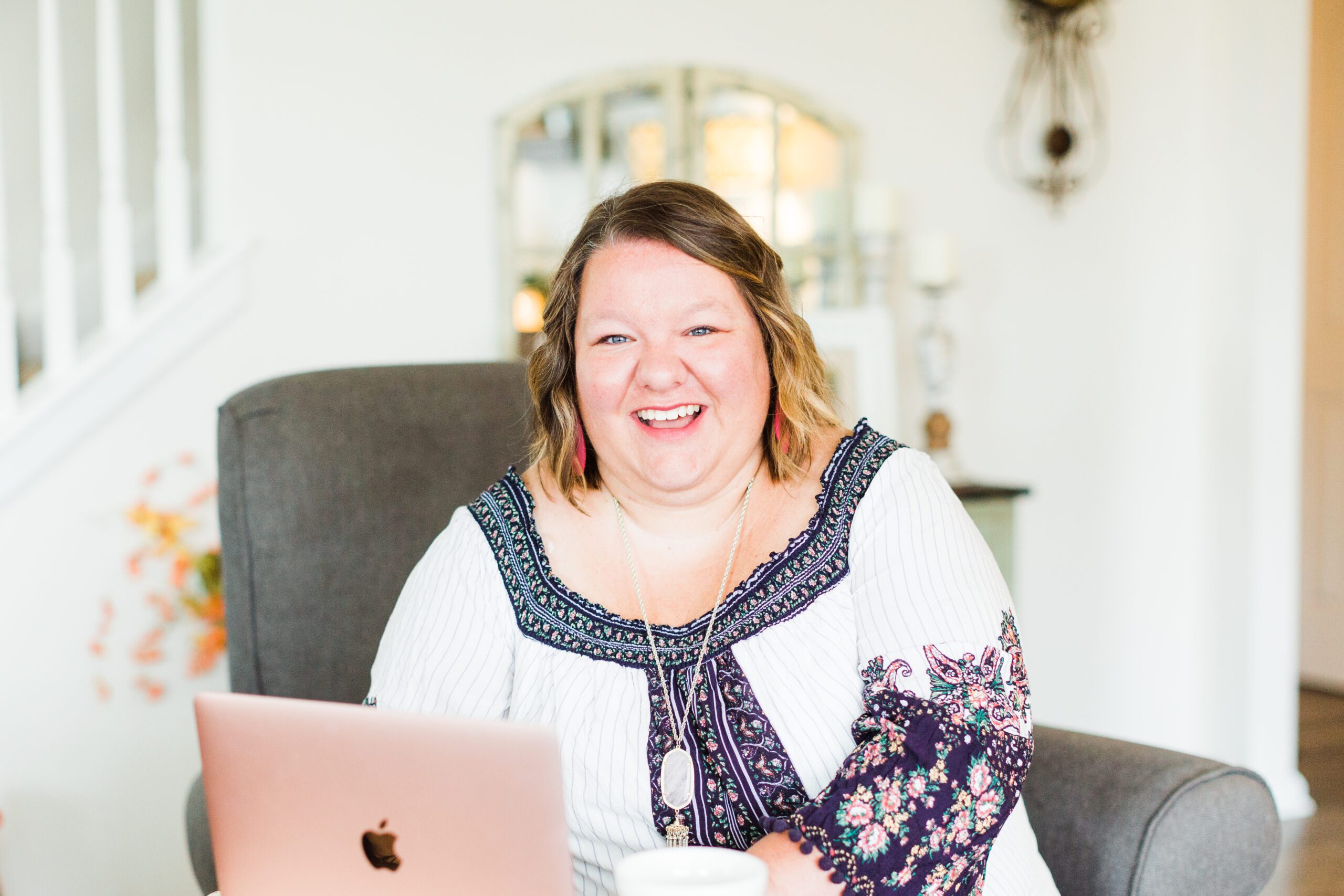
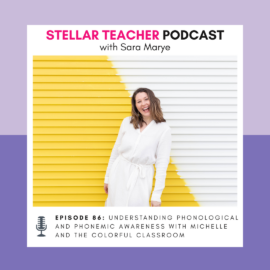
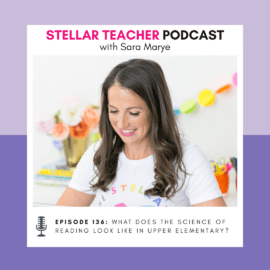
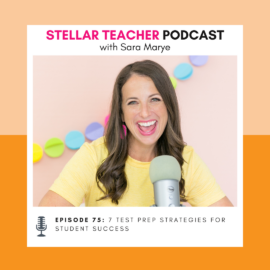
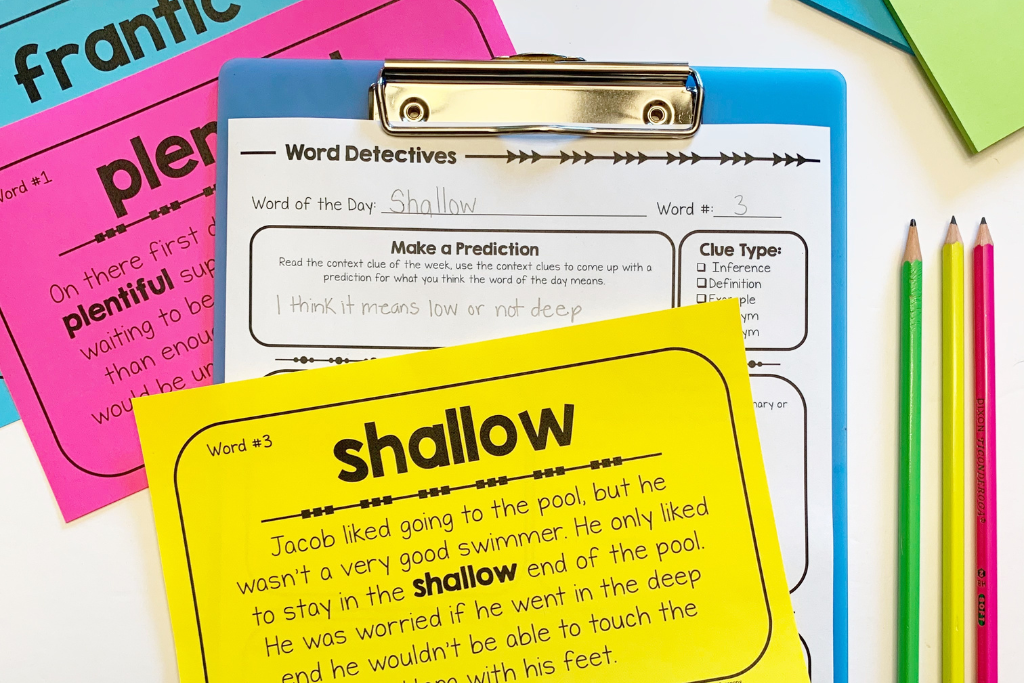

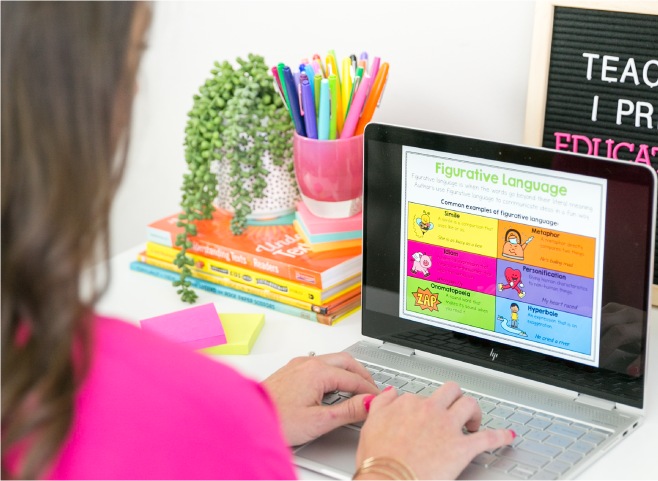
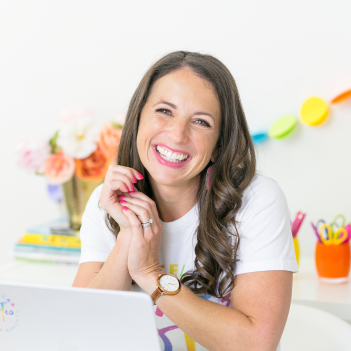
Leave a Comment
You must be logged in to post a comment.